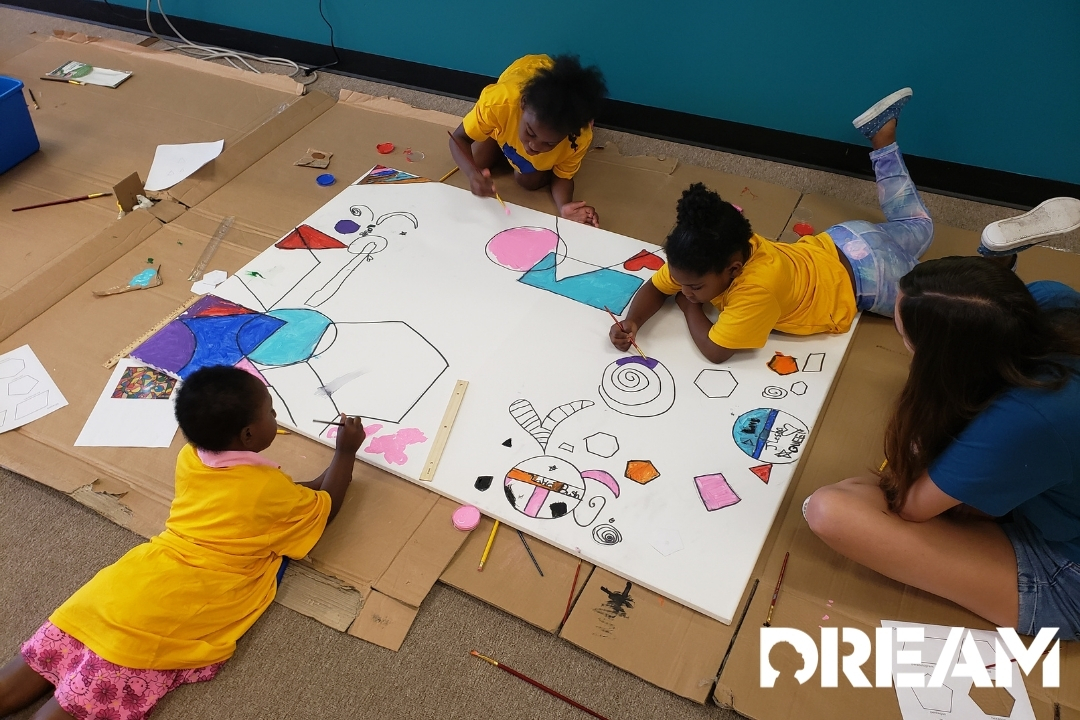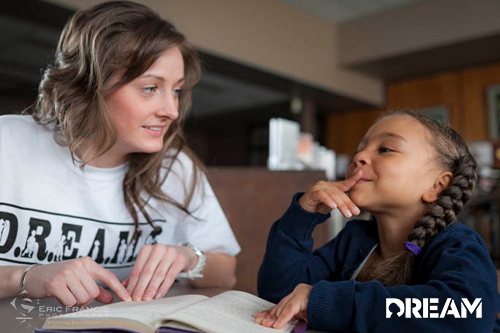Whether it’s in business relationships, personal relationships or school relationships, mentoring plays a valuable role in our community. Becoming a mentor gives you the opportunity to share your knowledge, experience and principles with someone else. This type of relationship often encourages and enables them to grow into someone even more exceptional. If you’ve ever been mentored yourself, you know how beneficial a mentor can be.
So of course, when looking at how adults can serve the children in our community, mentoring comes high on the list. While mentoring a child can be similar to mentoring an adult, it brings with it a whole new level of commitment and benefits. Mentoring a child helps them to see unlimited possibilities for the future, learn something new and most importantly, realize that somebody cares about them. Here’s why mentoring matters for children—and why you should consider getting involved.
1. Mentoring helps learn new things.
When you mentor a child, you can teach them any number of new things, helping to expand their mind and absorb new information. For instance, if you work as a construction worker, you can teach your mentee about construction; or, if you enjoy volunteering at a dance studio, you can show your mentee some of your favorite moves. However, even more than practical skills and knowledge, having a mentor exposes children to new ideas, new thought processes and new ways of life, that they might not have received otherwise from their immediate circle of adults. When children learn new things, they can continue to grow into well-rounded and stable adults themselves.
2. Mentoring gives new experiences.
Just as mentoring helps children learn new things, it also gives new and exciting experiences. This experience could be as simple as going to get ice cream at a local shop, or could be as complicated as making a trip to a different city for an adventure. One study conducted by North Carolina State University shows that youth from disadvantaged backgrounds are twice as likely to attend college when they have a mentor. This can be in part from the experiences they gain through the mentoring process. When children are exposed to a variety of controlled circumstances during their development, they learn confidence, feel connected and will be more likely to search for new experiences as they become adults.
3. Mentoring provides valuable adult relationships.
Oftentimes, the children who need a mentor the most are those who otherwise might not have very stable adult relationships in their lives. These are the children who come from difficult situations, dramatic family backgrounds and struggle in school. Through mentoring, they’re able to experience a stable, valuable adult relationship, perhaps for the first time in their life. Appropriate adult relationships are an incredibly important component in any child’s development. They provide someone the child can look up to, trust and learn from. According to a five year study conducted by Big Brothers Big Sisters Canada, children with mentors were found to be more confident and have fewer behavioral problems than their peers without mentors. Adult relationships matter, and you can provide that for a child.
4. Mentoring shows someone cares.
Finally—and possibly most importantly—mentoring shows that someone cares. Children know their parents are supposed to love them. They understand that even their teachers should care for them in some way. But when they have a separate adult come in and love them appropriately, without any visible “benefit” or “recognition,” they truly feel special. By establishing a mentor relationship with a child, you can change a life through the power of caring. When children know someone out there cares for them, they’re less likely to get in trouble, more likely to focus on getting good grades and more likely to be involved with the community themselves. All of these benefits come from the relational support an adult mentor can provide.
If you want to live an altruistic life and make a valuable impact on your community that will literally last a lifetime, consider mentoring a child. You have the opportunity to make a genuine difference in their life, and you might just be surprised at the benefits you gain, as well.






